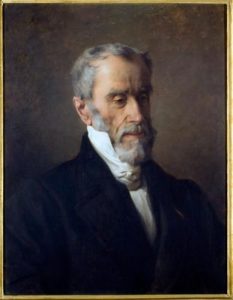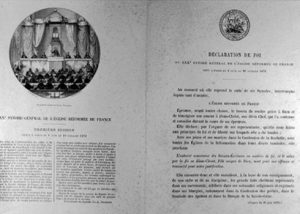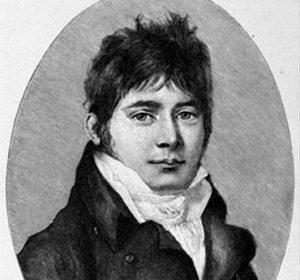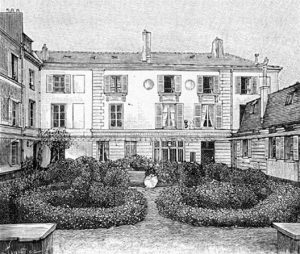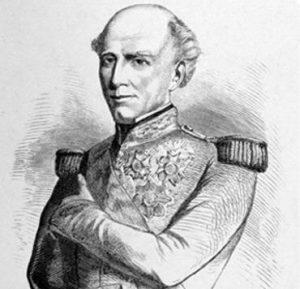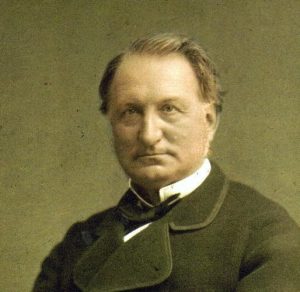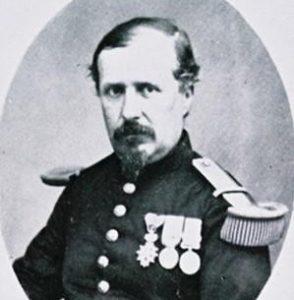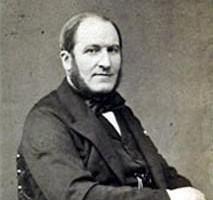An influential lay figure
The Baron de Clausonne, magistrate and president of the Nîmes Tribunal, was a member of the Nîmes Consistory and Chairman of the Bible Society. His position was that of a very moderate liberal opposed to the notion of church division or of leaving the Church (in this respect he differed from Félix Pécaut). His faith was of the traditional trend and – an exception amongst the liberals – he was very much attached to the institution of synods where he sometimes voted with the evangelicals in an attempt to keep a balance.
As vice-Chairman of the 1872 synod, he suggested a compromise : that the proposed confession of faith be that of the synod (and therefore with the possibility of revision) and not that of the Church. The suggestion was rejected and a split could not be avoided. A man of great learning and very much respected, he was the perfect representative of those 19th century influential Protestant lay figures with a prominent public role.

